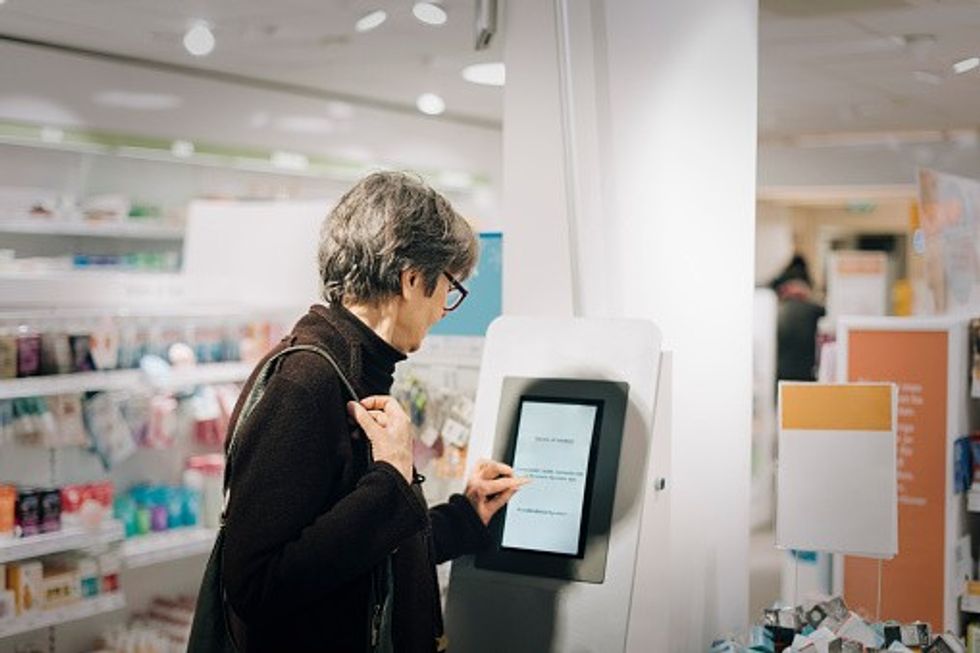Emily Richardson shares her views on how pharmacy teams can help women patients seeking information and support on menopause …
The menopause is a natural aging process, whereby a woman’s oestrogen level drops thus disrupting periods until they eventually stop.
A woman is said to be in the menopause when her periods have stopped for 12 months. The age when this usually occurs is between 45-55 but symptoms can begin prior to this. Symptoms vary and not all women experience them all.
They include hot flushes, vaginal dryness, joint and muscle pain, insomnia, reduced libido, urinary problems such as bladder weakness or Urinary Tract Infections (UTIs), but this list is not exhaustive.
Up to a third of women declare that the menopause affects their quality of life. It is obvious that such physical changes can have an effect on ones well-being. Women going through the menopause are at increased risk of developing depression, low self-esteem and problems with concentration (often called brain fog).
There are lots of misconceptions in the public and workplace around menopause as it is a little discussed topic. Did you know 45 per cent of women feel their menopause symptoms have had a negative impact on their work and 47 per cent of women have said that they won’t tell their employer if they need to take a day-off from work because of menopausal symptoms?
So, with women making up nearly half of the UKs workforce, have you thought about what support your workplace offers for you? And if you are an employer, what could you be doing to support your colleagues who need help during this time?
As many women say they feel embarrassed and judged in the workplace when talking about this topic, the British Menopause Society has published literature on what workplace guidance should contain to help support their workforce.
This includes:
- Providing easy access to up-to-date information relating to the menopause, what is the menopause? Where can you seek help? What coping mechanism may help in work?
- Employers also need to have knowledge on the topic, particularly line managers who may need to offer help and support. Line managers should have guidance on what good practice looks like when having conversations with their staff members in order to the support them individually. There should be an acknowledgement that some women may not want to talk to a younger or male member of management.
- The guidance should address that there shouldn’t be a ‘one size fits all’ approach. The menopause is a personal experience, and as mentioned previous symptoms and severity of these vary, therefore support should be tailored to the needs of the person.
- The guidance should acknowledge the legal liabilities workplaces have to look after the health and wellbeing of their workforce.
- The workplace should have a policy that covers the menopause. This should include topics such as flexible working patterns, sickness absence procedures or adjusted break policies. It should also cover environmental factors such as adjustments made to seating arrangements, additional fans granted for those who need or adaptions to uniform policies.
- The availability of support through a ‘key contact’ or named individual within the workforce to seek first help from first should be in place. To me, the above seem like obvious and reasonable wants and needs in any organisation, but how confident are you as an employer that you meet the needs of your workforce?
Another way an employer can help support their workforce is signing the ‘Menopause Workplace Pledge’, current organisations that have signed this include AstraZeneca and Royal Mail.
By signing this your pharmacy or organisation is committing to:
- Recognising that the menopause can be an issue in the workplace and women need support
- Talking openly, positively and respectfully about the menopause
- Actively supporting and informing your employees affected by the menopause
Employees can also sign this pledge too, adding your name helps encourage employers to become supportive and understand potentially yourself, patients and your colleagues. For many years the menopause has been a taboo subject. I think everyone knows someone who has been affected in some way by the menopause.
In addition, I’m sure many of us have witnessed colleagues at work who could have benefitted from workplace-based support. Let’s hope more companies sign the Menopause Workplace Pledge and support their workforces if needed.
Emily Richardson is a pharmacist with Pilltime Pharmacy.















 A woman using kiosk at pharmacy store gettyimages
A woman using kiosk at pharmacy store gettyimages  Pharmacist examining commissioning machine in pharmacy gettyimages
Pharmacist examining commissioning machine in pharmacy gettyimages 

 Pharmacyexprezz offers blood tests, travel vaccinations, earwax removal, cryotherapy and more.
Pharmacyexprezz offers blood tests, travel vaccinations, earwax removal, cryotherapy and more. The team at Pharmacyexprezz continues to grow
The team at Pharmacyexprezz continues to grow